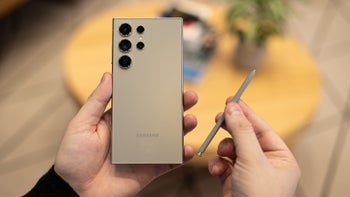DOJ halts investigation after Verizon, AT&T and GSMA agree to change their eSIM practices

In April of 2018, the U.S. Justice Department announced that it was investigating collusion in the wireless industry. Verizon and AT&T were being probed along with the GSMA. The latter is a trade organization that represents mobile wireless providers. The trio was being accused of developing a new wireless standard that would make it harder for consumers to switch to another carrier. More specifically, they were reportedly working on a method that would lock a mobile device to a particular wireless operator even if it had an eSIM; normally that technology allows consumers to easily switch to another mobile provider.
First, let's take a minute to explain what an eSIM is. Many of you are familiar with a SIM card. Containing an integrated circuit, a SIM card is inserted into a phone's SIM card tray and is used to authenticate a customer's subscription to a mobile wireless operator. An eSIM is an embedded SIM that is soldered to a phone's motherboard. An eSIM can be set remotely; all a phone owner needs to do to switch carriers is send a message to the new provider, and one to the old provider.
So with Verizon, AT&T and the GSMA working on a new standard that would prevent phone owners from easily switching carriers, the DOJ conducted its investigation and on Wednesday the agency's antitrust chief Makan Delrahim sent a letter to the GSMA (via the New York Times). In the letter, Delrahim said that the DOJ agreed to end the probe after the GSMA agreed to new procedures for setting industry standards called AA.35. This will allow the industry group to promote a new set of standards for Remote SIM Provisioning ("RSP") for embedded SIMs. In other words, the new procedures will prevent Verizon, AT&T and the GSMA from trying to develop a method that would prevent consumers from switching a phone using eSIM to another wireless provider.
The Times says that Verizon and AT&T subscribers make up 70% of all mobile wireless users in the states. Thus, the two carriers might lose some of that market share if its subscribers were able to switch to a rival wireless operator without having to do much work; conversely, making it harder for these subscribers to leave Verizon and AT&T would allow the nation's two largest wireless providers to continue their domination of the industry,
In the letter, Delrahim passes along the DOJ's conclusion. "In sum, the Department believes that AA.35 includes sufficient protections to minimize the chances of anticompetitive self-dealing inside the GSMA if it is applied as contemplated. Sometimes regulatory agencies do the right thing.










Things that are NOT allowed: